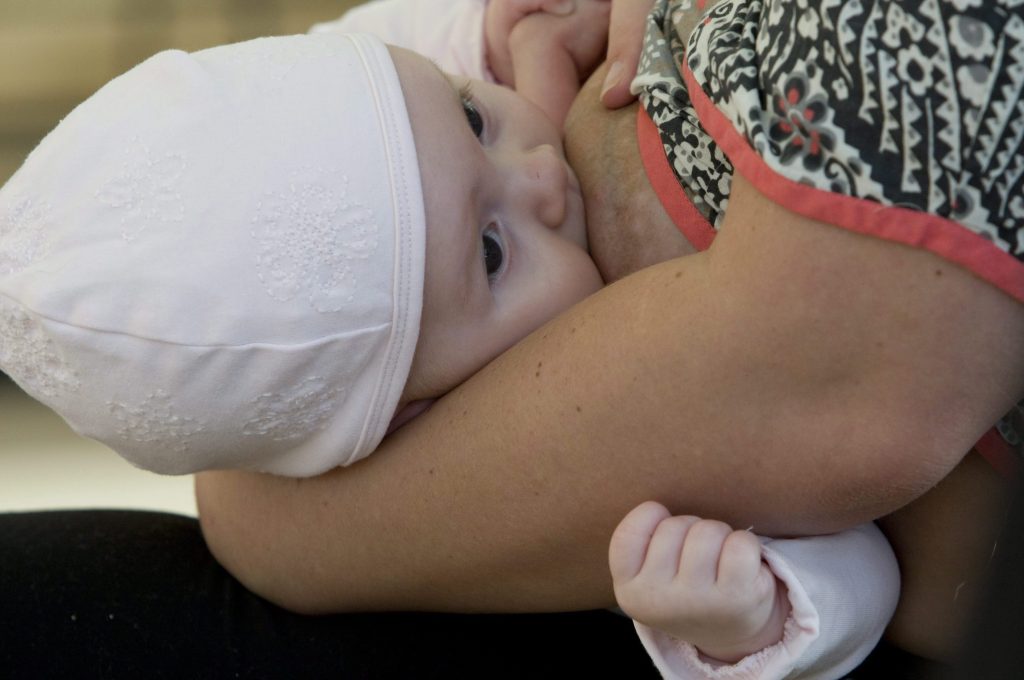1 baby in 10 has no family doctor in Quebec: ISQ report

Inequalities persist in access to a doctor, even for newborns. Around 1 in 10 babies did not have a family doctor or pediatrician at the time the Institut de la statistique du Québec (ISQ) conducted a survey, and this proportion is much higher among low-income families or those whose parents were born outside Canada.
The ISQ report published Wednesday morning shows that 21 per cent of newborns are without a doctor among single-parent families in Quebec, and the proportion is the same for families where both parents (or a single parent) were born outside Canada. Low-income households are also more affected, with 20 per cent of babies living in these households having no doctor.
“This suggests that there are inequalities that start very early in children’s lives. It remains to be seen whether these inequalities will persist over time. We ask the question a few times in our survey, and we’ll be able to track the evolution of this indicator over time,” mentioned Amélie Lavoie, coordinator of content and publications for longitudinal studies at the ISQ, in an interview.
Advertisement
In Quebec, the majority of babies are considered to be in excellent (72 per cent) or very good (21 per cent) health by their parents. However, once again, certain family nests seem to be more affected by social inequalities. The proportion of babies perceived as being in poorer health, either good, fair or poor, was 7 per cent among all families surveyed.
The perception of poorer health was highest among single-parent families (12 per cent); those whose parents or lone parent were born outside Canada (12 per cent); and low-income families (10 per cent).
Breastfeeding on the rise
The proportion of babies being breastfed has risen sharply in Quebec since the late 1990s. The rate of breastfeeding during the first four months of life has risen by 25 percentage points. More specifically, it has risen from 41 per cent for babies born in 1997-1998 to 66 per cent for those born in 2020-2021.
“Given that the Ministry of Health and Social Services has, in recent years, focused on promoting breastfeeding in monitoring plans, they have also implemented the “Baby Friendly Initiative” among other things, which aims to encourage breastfeeding in hospitals. We can assume that all these initiatives and organizations aimed at supporting breastfeeding […] have boosted the breastfeeding rate in Quebec,” commented Lavoie.
Advertisement
The report also looks at exclusive breastfeeding, i.e. offering breast milk without combining it with other types of liquid or solid foods. The results show that 52 per cent of babies born in hospitals or birthing centers in 2020-2021 were exclusively breastfed at their place of birth. The Ministry of Health and Social Services has set a target of 75 per cent as part of the “Baby-Friendly Initiative.”
We don’t take into account in our study that some babies may have received commercial infant formula for medical reasons,” says Lavoie. We’re going to have another survey starting up in a few months or a few years, which may give us a better understanding of this phenomenon.”
For the first four months of an infant’s life, the rate of exclusive breastfeeding rose from 6% for babies born in 1997-1998 to 29 per cent for the 2020-2021 sample.
The ISQ report is based on the “Growing Up in Quebec” longitudinal study, which will follow more than 4,000 children born in 2020-2021 until they reach adulthood. A first cohort of babies born in 1997-1998 had undergone the same type of study, making it possible to compare the two groups born almost 25 years apart.
Baby’s sleep
Advertisement
Evidence suggests that the majority of babies get enough sleep. The Canadian Paediatric Society recommends that babies aged 5 months sleep between 12 and 16 hours. Three-quarters of the infants in the study met this recommendation.
At the time of the survey, almost half (49 per cent) of the babies aged 5 months and over were sleeping through the night, i.e. for at least six hours at a time. In the month prior to the survey, around 13 per cent of babies aged at least 5 months never woke during the night, 52 per cent woke once or twice, and 35 per cent woke three or more times.
“There seems to be an increase in babies waking up a little more often at night, and a lower proportion of babies sleeping 6 to 8 hours straight. We can see that babies’ sleep is a little less consolidated than at the end of the 1990s, but we can’t compare strictly speaking. We feel there’s a trend, but there are other studies we can do over the years to better understand this evolution in sleep,” says Lavoie.
Surprisingly, 62 per cent of parents perceive their child’s nocturnal awakenings as not at all problematic for them, and only 5 per cent said it was very problematic.
–The Canadian Press health content is funded through a partnership with the Canadian Medical Association. The Canadian Press is solely responsible for editorial choices.
Advertisement
–This report by La Presse Canadienne was translated by CityNews